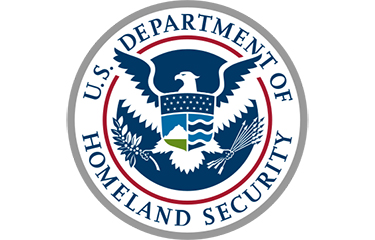The U.S. Department of Homeland Security has announced that it will not increase the cap on H-2B visas for the 2020 fiscal year, but the agency is implementing a new rule it said will give food processors more flexibility to help them during the covid-19 pandemic.
The rule, scheduled to be published Thursday, May 14, will allow companies to hire current visa holders already in the country for work, according to a statement posted on the U.S. Citizenship and Immigration Services site.
"These necessary flexibilities will safeguard a critical U.S. infrastructure sector; reinforce security of the nation’s food supply chain; and encourage key American businesses to maintain essential operations currently threatened by the covid-19 public health emergency,” said Joseph Edlow, deputy director for Policy at Citizenship and Immigration Services. “Importantly, these measures protect U.S. workers by not adding supplemental H-2B visas during the national emergency.”
In order to get approval, companies must get the U.S. Secretary of Labor to agree there is not enough qualified American workers “available at the time and place” where the work is needed.
The H-2B visa cap remaining at 66,000 is a critical blow for seafood processors and the representatives in Congress who were pressing DHS officials to expand the cap again this year. In March, officials initially signed off on a plan to add 35,000 visas through the end of the fiscal year in September, but that was put on hold after the coronavirus emergency.
Bill Sieling, executive director of the Chesapeake Bay Seafood Industries Association, said his group’s members have secured about 150 of the 450 to 500 visas they need for the upcoming crab processing season.
“It's going to be devastating for those who don't have any workers, and even the companies that do have workers have a greatly reduced number from what they usually have because of social distancing and all the other precautions that are being taken to prevent anybody from catching the coronavirus," he said. "Nobody is going to be able to make any money this summer at all. It's going to be a disaster.”
Critics of the H-2B and other similar programs that bring in foreign labor for temporary work claim they take jobs away from Americans. In April, the unemployment rate ballooned to 14.7 percent resulting mostly from companies temporarily laying off workers due to emergency orders that forced them to close to attempt to control the spread of the virus.
However, Sieling said Maryland’s crab processors are located in remote parts of the state not easily accessible from places like Baltimore and the Washington, D.C., suburbs.
“This is one of the reasons historically that we've had to rely on these visa workers so much, is because these are such remote areas, there's no entertainment, there's no, amenities, none, and it's like 50 miles from nowhere,” he said.
The new guidelines will allow food supply companies to bring on a worker for up to 60 days while their petition is before Citizenship and Immigration Services. In addition, the rule lets foreign workers stay beyond the three years the visa allows to do essential jobs.
Sieling said Maryland crab processors are looking into that possibility, and they’re getting help from state officials in finding visa-holders who may be available to fill the open positions.
“We didn’t fall off the turnip truck yesterday,” he said.
Johnny Graham, of Graham & Rollins Inc., a crab processor located in Hampton, Va., said he didn’t get any visas via the lottery and is now facing a dire situation. He said companies like his are “on the outside looking in” as some companies that were allowed to keep workers longer, don’t even need the workers they were granted.
“We all know, because of the coronavirus and what has happened, a lot of these visas have been unused,” Graham said. “Yet, my company needs those visas, we’re able to operate, and all we’re asking is the government to go back in.”
In the meantime, Graham’s processing facility is sitting idle with no workers, a situation that doesn’t appear to be changing any time soon.
“My 78-year history of operations is in jeopardy because of this lottery draw,” Graham said.
This story was originally published on SeafoodSource.







